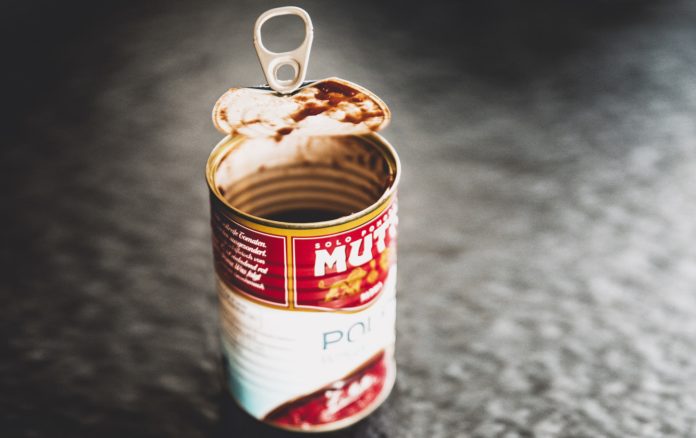Study shows excessive metallic oxide that permeates into the food affects nutrient absorption
Those attractive cans may be pushing metals into your food at far higher doses than is recommended and thus stealing your nutrients.
Food packaging negatively affect the way in which the digestive tract operates, according to new research by faculty and students at Binghamton University, State University at New York.
“We found that zinc oxide (ZnO) nanoparticles at doses that are relevant to what you might normally eat in a meal or a day can change the way that your intestine absorbs nutrients or your intestinal cell gene and protein expression,” said Gretchen Mahler, associate professor of bioengineering. The study was published in the journal Food and Function.
According to Mahler, these ZnO nanoparticles are present in the lining of certain canned goods for their antimicrobial properties and to prevent staining of sulfur-producing foods. In the study, canned corn, tuna, asparagus and chicken were studied using mass spectrometry to estimate how many particles might be transferred to the food. It was found that the food contained 100 times the daily dietary allowance of zinc. Mahler then looked at the effect the particles had on the digestive tract.
Although Mahler studied these effects in the lab, she said she is unsure what the long-term health implications might be.
“People have looked at the effects of nanoparticles on intestinal cells before, but they tend to work with really high doses and look for obvious toxicity, like cell death. We are looking at cell function, which is a much more subtle effect, and looking at nanoparticle doses that are closer to what you might really be exposed to,” said Mahler.
Although Mahler studied these effects in the lab, she said she is unsure what the long-term health implications might be.
“It is difficult to say what the long-term effects of nanoparticle ingestion are on human health, especially based on results from a cell culture model,” said Mahler. “What I can say is that our model shows that the nanoparticles do have effects on our in vitro model, and that understanding how they affect gut function is an important area of study for consumer safety.”
The researchers are looking at how an animal model (chickens) responds to nanoparticle ingestion.
“We have seen that our cell culture results are similar to results found in animals and that the gut microbial populations are affected. Future work will focus on these food additive-gut microbiome interactions,” said Mahler.


